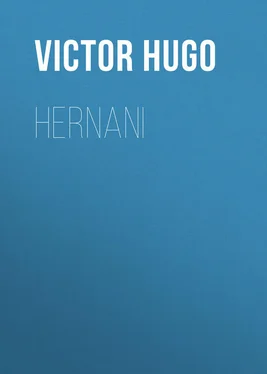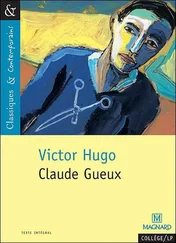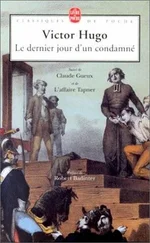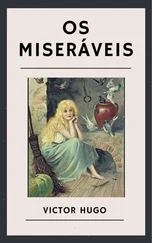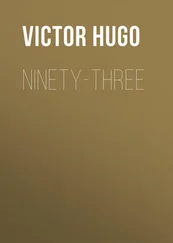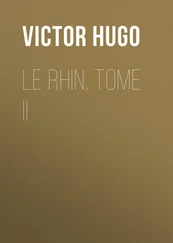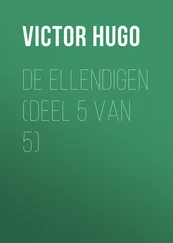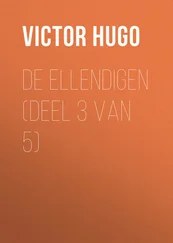Victor Hugo - Hernani
Здесь есть возможность читать онлайн «Victor Hugo - Hernani» — ознакомительный отрывок электронной книги совершенно бесплатно, а после прочтения отрывка купить полную версию. В некоторых случаях можно слушать аудио, скачать через торрент в формате fb2 и присутствует краткое содержание. Жанр: literature_19, foreign_antique, foreign_prose, на французском языке. Описание произведения, (предисловие) а так же отзывы посетителей доступны на портале библиотеки ЛибКат.
- Название:Hernani
- Автор:
- Жанр:
- Год:неизвестен
- ISBN:нет данных
- Рейтинг книги:3 / 5. Голосов: 1
-
Избранное:Добавить в избранное
- Отзывы:
-
Ваша оценка:
- 60
- 1
- 2
- 3
- 4
- 5
Hernani: краткое содержание, описание и аннотация
Предлагаем к чтению аннотацию, описание, краткое содержание или предисловие (зависит от того, что написал сам автор книги «Hernani»). Если вы не нашли необходимую информацию о книге — напишите в комментариях, мы постараемся отыскать её.
Hernani — читать онлайн ознакомительный отрывок
Ниже представлен текст книги, разбитый по страницам. Система сохранения места последней прочитанной страницы, позволяет с удобством читать онлайн бесплатно книгу «Hernani», без необходимости каждый раз заново искать на чём Вы остановились. Поставьте закладку, и сможете в любой момент перейти на страницу, на которой закончили чтение.
Интервал:
Закладка:
The question of the man's personality need not enter into our estimate of a dramatist, a novelist, or an historian, though as a matter of fact it does. But we can hardly consider lyric poetry merely with reference to its intrinsic quality. Lyric poetry is generally a record of its author's most intimate emotions; it is a sublimation of his life: and this is peculiarly true in the case of Victor Hugo. For, after all, his chief subject was himself. It is certainly permissible, and we can readily understand that it is indeed almost necessary, that a lyric poet should view the world subjectively. One can therefore find no fault with Victor Hugo for this. But it is a marked characteristic of his work that he cannot get outside of himself, that he is rarely carried away by his passion for the beautiful and the true, though this passion he did really possess. So although we cannot blame his egoism as a fault, we must deplore it as a defect; for on account of it alone he falls short, in the opinion of many critics, of being a great world-poet, one of the supreme consolers and sustainers of humanity.
There is a fine essay on Victor Hugo by Mr. Frederic W. H. Myers, [note: In volume v of The Nineteenth Century .] which all students of the poet ought to read, not only because it is a very thorough criticism on Hugo as a lyric poet, but also because it is a masterly piece of work altogether, and full of suggestions. Mr. Myers says: «In his moral nature we shall find much that is strong, elevated, and tender; a true passion for France, a true sympathy for the poor and the oppressed, a true fondness for children. Further than this it will be hard to go; so plain will it be that the egoism which penetrates M. Hugo's character is a bar to all higher sublimity, and has exercised a disastrous effect on his intellectual as well as on his moral character.
«In calling M. Hugo egoistic I am far from accusing him of vulgar self-seeking – of an undue regard for any tangible form of personal advantage. What I mean is that he seems never to forget himself; that whatever truth he is pursuing, whatever scene he describes, his own attitude in regard to it is never absent from his mind. And hence it results that all other objects are unconsciously made secondary to the great object of making an impression of the kind desired. From the smallest details of style up to the most serious steps in political conduct this preoccupation is visible. It was the same spirit which prompted the poet to begin one of his most solemn elegiac poems with the repeated assertion «that it should never be said that he kept silence, that he did not send a sombre strophe to sit before his children's tomb», and which prompted the politician to resign in a moment the trust which Paris had committed to him, because the Assembly would not listen to him with the respect which he thought his due.»
Mr. Myers seems too sparing of his praise for what Hugo did that is excellent in poetry, passing without mention some of his sweetest songs and most stirring outbursts of grandeur. His essay came as antidote to the immoderate eulogy published just before by Mr. Swinburne, and overdoes its promise of giving us a calmer estimate of Hugo. Mr. Myers does not do justice to the contents of Hugo's poetry, and he is perhaps not as susceptible of being ravished by the form as Swinburne was. Yet there is truth in what Mr. Myers says when he tells us that he thinks Hugo's «central distinction lies in his unique power over the French language, greatly resembling Mr. Swinburne's power over the English language, and manifesting itself chiefly in beauty and inventiveness of poetical form and melody.» Mr. Edward Dowden speaks with high praise of Hugo's successful efforts «to reform the rhythm of French verse, to enrich its rhymes, to give mobility to the caesura, to carry the sense beyond the couplet, to substitute definite and picturesque words in place of the fadeurs of classical mythology and vague poetical periphrasis.» And this is indeed Hugo's chief distinction and the chief distinction of all the Romanticists, for their pretended searching of foreign literature and mediaeval history brought them less poetical material than variety and vigor of poetical form.
The two most characteristic classes of subjects of Victor Hugo's poems are politics, in a wide sense of the word, and his own family life. He is not a great poet of nature, though some of his sea-pictures are very remarkable. He was prevented by his egoism from being a great interpreter of the heart or a great preacher of divine truth. But Mr. Myers, with much reason apparently, finds a fundamental weakness in Hugo's early political poetry also. He tells, and proves it too, that Hugo had not fully made up his mind, prior to his banishment, what his political ideal was. He sang the praises of the Bourbons when they were on the throne; but then he was a mere boy, and I have shown how at that time he was under the potent influence of the period, which made for conservatism. That surely is a part of his history of which he has no reason to be ashamed, even though he soon emancipated himself from royalist tendencies. But what is harder to understand, for a foreigner, is how he could have become a worshipper of Napoleon and a friend of Louis Bonaparte. It is only the French who could thus kiss the hand that smote them, and love a tyrant because he brought them false glory – the glory of victory in unjust wars. Patriotism of that sort is a national vice, and the French have it in their blood. We might suppose that when he had not only got rid of his Bourbon blindness, but recovered from his Napoleonic fever, Victor Hugo would at last find favor in Mr. Myers's eyes, as a republican, and a republican who suffered eighteen years of exile for his opinions. But no; Mr. Myers's praise is strictly qualified, and again he convinces us that he is right: «We find the same vagueness and emptiness in M. Hugo's praises of the Republic, and yet there is no subject on which a political preacher in France needs to be more explicit. For under the name of Republic are included two forms of government as dissimilar as forms of government can be. A republic may be constructed, like the American republic, on individualistic principles, reducing the action of government to a minimum, and leaving every one undisturbed in the pursuit of private well-being. Or it may be constructed on socialistic principles», etc. And he goes on to say that «no real instruction on these points can be got from M. Hugo's writings or speeches.»
Mr. Myers carries his condemnation even into the sphere of love-poetry, declaring that Hugo did not write the very best love-poetry because his love was always a refined egoism, and that his poetry suffers from «the want which separates patronage and desire from chivalry and passion.»
I have purposely quoted some of the severest things I could find in first-class criticism, because I wish to conclude with words of praise, which will carry more weight if it is perceived that they were not blindly penned. It is in itself a great achievement to have done so much honest work of a high character as Hugo did. It is no small distinction to have guided a people's hopes for eighteen years from his island of exile. It is a noble end of a zealous life to have worn for fifteen years the crown of such a nation's kingship. But when even these proud honors are forgotten, children's voices will still repeat and men's hearts still echo a hundred songs of the greatest lyric poet of France.
HISTORICAL NOTE TO «HERNANI»
«HERNANI» is an historical tragedy. Its real hero is that inscrutable great man upon whom fortune bestowed first the throne of Spain and presently the crown of the Holy Roman Empire, with the title Charles the Fifth. Although Hugo, as a dramatist may do with perfect right, departs in many instances from historical fact, the play demands for its proper enjoyment some information concerning the nature of the imperial office and the character of Charles.
Читать дальшеИнтервал:
Закладка:
Похожие книги на «Hernani»
Представляем Вашему вниманию похожие книги на «Hernani» списком для выбора. Мы отобрали схожую по названию и смыслу литературу в надежде предоставить читателям больше вариантов отыскать новые, интересные, ещё непрочитанные произведения.
Обсуждение, отзывы о книге «Hernani» и просто собственные мнения читателей. Оставьте ваши комментарии, напишите, что Вы думаете о произведении, его смысле или главных героях. Укажите что конкретно понравилось, а что нет, и почему Вы так считаете.
